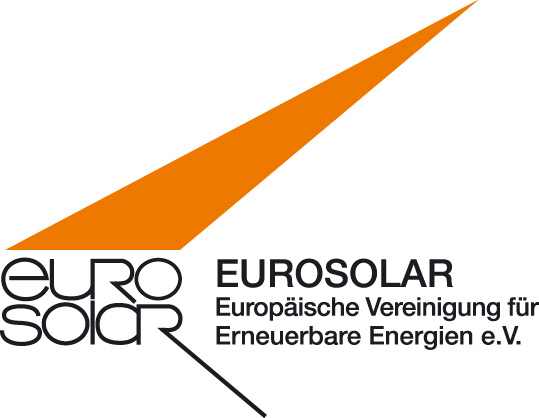COP 21 in Paris will prove to be another cop-out, unless the negotiating parties focus away from inadequate targets, the surrogate and ineffective measures of emissions trading, and make-believe‚ ‚low-carbon‘ technologies such as natural gas fracking and carbon capture and storage. The UN must end the paralyzing annual rituals of political bargaining and focus squarely on the existential business of completely eliminating non-renewable energy sources and destructive land management practices – starting immediately and focusing on implementation by 2040. This Call expands EUROSOLAR’s 2013 renewable energy market framework call for Europe.
EUROSOLAR and the World Council for Renewable Energy (WCRE) call on the IPCC, other UN organizations, IRENA, the IEA, the regional development banks, and international governments to develop and embrace a comprehensive market based renewable energy proliferation framework, the New Energy Market Order (NEMO).
- Proliferation of worldwide NEMO policies. Global organizations, regional institutions and international governments must shift the focus on a seeking agreed position on emissions targets to systematically directing global energy policy towards an energy future entirely founded on renewable energy sources, thereby aiming at the primary source of the problem. To achieve this it is necessary to support governments, regions and local communities in aiming at renewable energy targets without upper ceilings, supported by feed-in tariffs, the abolition of subsidies for non-renewable energy, and other effective investment frameworks for renewable energy development – and make the relevant frameworks integral part of international and national law.
- NEMO regulations. Energy laws, until now framed within national markets, must be transformed into new frameworks for the move to decentralized energy supply through regional and local energy markets. Market regulations must follow the logic of the decentralized and regionally specific supply of renewable energy. They must ensure that states take the necessary action to frame and guide rapid paths into transforming the energy system to distributed renewable infrastructures.
- NEMO technical support. The International Renewable Energy Agency (IRENA) must focus on this aim, assisted by national and regional agencies for renewable energy. These agencies are positioned to share the responsibility to develop networks, exchange best practice and to coordinate definite development scenarios for all regions, based on the specific potential each region has.
- NEMO finance. Funding, support and preferences for nuclear and fusion energy, for CCS or other fossil-fueled power or mining technologies must end immediately. These budgeted funds have to be re-allocated immediately to support renewable energy research, development and market entry.
- NEMO barrier removal. National and international plans to exit nuclear and coal technology must be established without delay, and international policies must abolish their public support. Extensive financial and technical support by the WTO, UNIDO and international and regional structural funds are to be made available in support of the move to renewable energy systems. Trade barriers are to be ended, and the trillions of dollars in non-renewable energy subsidies are to be ended.
- NEMO infrastructure and regeneration. Instead of focusing on centralized energy infrastructure, projects for decentralized energy production are to be developed. The planning and construction of new infrastructure projects such as highways and railroads is tied to the increase in and autonomous supply provided by power systems based exclusively on the abundant and cheap sources of wind, sun, water and bio-energy that can be harvested sustainably. Cross-border and cross-sector sustainable development enterprises in linkage to carbon absorbing soil and wetland regeneration projects promote the expansion of renewable energy use, create world-wide awareness, boost regional responsibility for decentralized decision-making supported by national and global frameworks – while alleviating the burden and costs of heavy national and transnational infrastructure.
Professor Peter Droege
President, EUROSOLAR and General Chairman, World Council for Renewable Energy
Endorsements from
- Axel Berg, Chairman of EUROSOLAR Germany
- Federico Butera, EUROSOLAR Italy
- Josep Puig, Vice President of EUROSOLAR, Spain
- Prof. Dr. Tanay Sıdkı Uyar, Vice President of EUROSOLAR, Turkey, Member of Committee of Chairpersons, WCRE World Council for Renewable Energies
